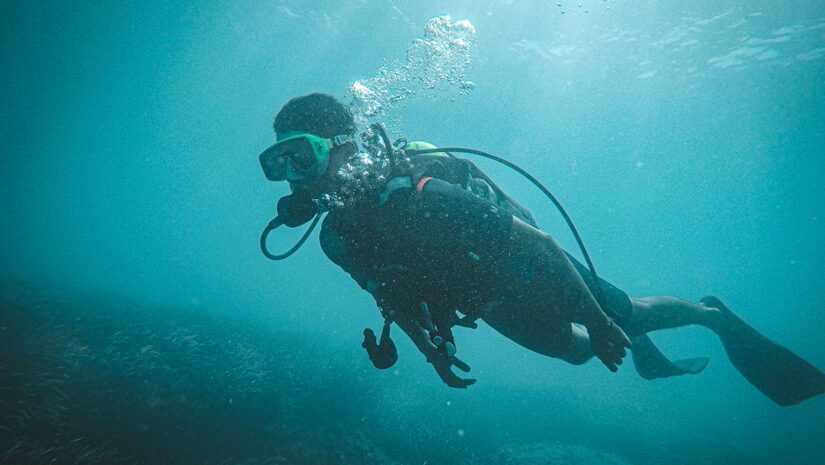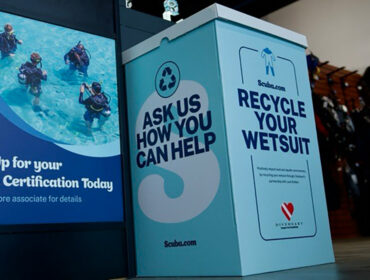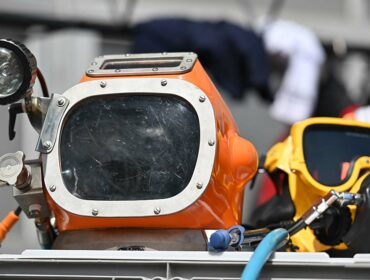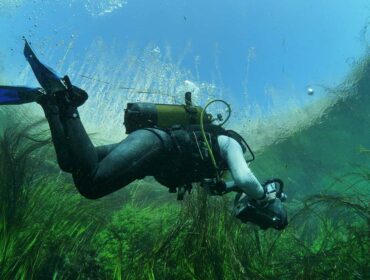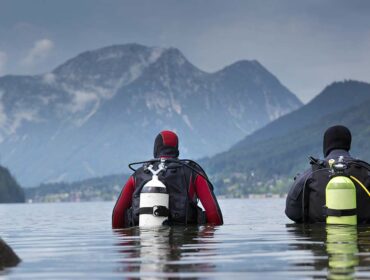Most likely if you’ve gone Scuba Diving a couple of times, you’re hooked and will be planning a lot of your vacations where you can dive some more. And sure, when you start off you can get away with just your basic mask, snorkel and fins while renting the rest, but how long do you plan on keeping that up. Let’s face it diving isn’t a cheap sport and add gear rental charges for every time you dive is not a lot of fun or smart. So, if you’re planning on diving long term, make a commitment to buy your own Scuba gear. It doesn’t have to be an all-or-nothing choice . You can buy gradually, piece by piece working your way to a full Scuba diving kit.
Here are 10 Rules for Buying Dive Gear:
1. Get it right the first time. Look at buying Scuba equipment, as a one-time investment. Buy what you need and good quality gear the first time around. Don’t say, “I’ll start cheap and upgrade later,” because it will end up costing you more money in the long run.
2. Research before you buy. Don’t go in blind when you walk into a store. Read past user reviews, scope out all your options of styles, brands and features, so that ultimately you are ready to make an informed decision. This doesn’t mean not looking around in the store or deviating from what you know.
3. Don’t go strictly on recommendations or what your friend says. People in the diving World often have strong opinions on the brand/ manufacturer of their choice and won’t always be objective when suggesting what’s right for you. From ScubaPro to Oceanic or Mares to Tusa, diver’s play favorites and what’s great to them isn’t necessarily right for you.
4. Try, Try and Try. Try on the gear and sample its features before you buy it. If you’re buying Scuba gear online, make sure the website you purchase from has a long enough window for returns (like LeisurePro’s 60/120 days return policy), in case you’re not fully satisfied with anything about the piece.
5. Only buy the right size. Don’t buy gear that doesn’t fit properly, no matter how much you like it or have your heart set on it. Even if it’s just one size big or one size small, don’t convince yourself you can make it work. Fit is everything when it comes to Scuba equipment. From the right fins, buoyancy compensators to just a simple dive masks, the fit of your equipment underwater can influence things like- air consumption, buoyancy control, maneuverability and just plain comfort and enjoyment of the dive.
6. Purchase your equipment through an authorized dealer for that manufacturer or a reliable store like LeisurePro offering a an equal or better warranty service. Don’t skimp on the warranty or service agreements when it comes to buying equipment.
7. Invest in a dive computer. It will enhance your diving experience allowing you to dive deeper, longer and safer, if used properly. Dive computers are fast becoming a Scuba diving essential which no diver should be diving without.
8. Look for features you need. There’s no need to go overboard with extra features on any piece of equipment, just because it’s offered by the manufacturer. Stick to quality over quantity. While choosing, remember that fancier doesn’t necessarily increase safety or make it better than other pieces with lesser features.
9. Buy a Wetsuit. You will need it, no doubt about it. Trying on wetsuits can be an exhausting and frustrating struggle, but it’s very important to have one that fits perfectly so don’t give up until you find one. If you can put it on easily, it means it’s too big for you. A little struggle while trying it on dry is a sign of a good fitting wetsuit. At the same time it shouldn’t be so tight as to stop circulation at your wrists or ankles is it’s a full wetsuit.
10. Go with your instinct and feel. At the end of the day, no amount of research or recommendations should cloud your own judgment on what feels ‘right’ when you try it on. Shop when you have a lot of time to spare to make a decision and not when you have to rush of to somewhere else.
And lastly (yes, I know I said 10… but here’s one for good measure)- Make good use of the Scuba gear and equipment you buy. Happy Diving People!!

